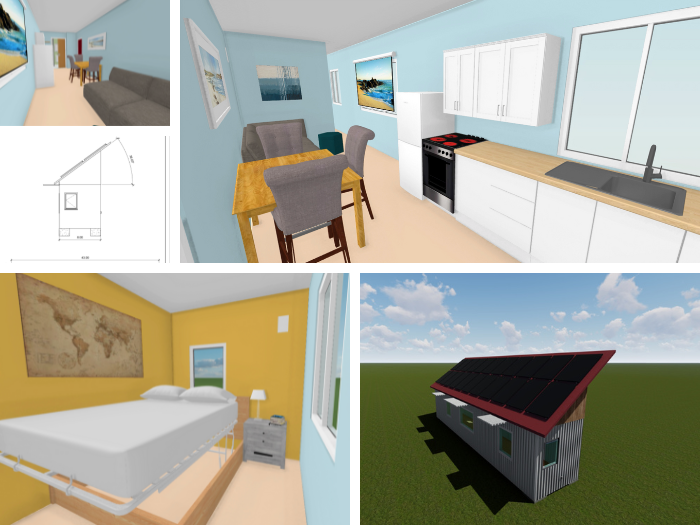
Shipping containers are trendy West Coast building options, used for everything from business storefronts to tiny homes. But can these boxes be transformed into innovative, energy efficient, low-carbon housing?
A group of University of Victoria students was determined to prove it could be done, and their design made it to the finals of a prestigious international competition. They made it there too, with some support from PICS Event Partnership program.
The UVic Renewable Energy Club, a student engineering and design club focused on fighting climate change, was the only Canadian team chosen to compete in the new housing division for the finals of the U.S. Department of Energy Solar Decathlon 2022 Design Challenge. The team consisted of Satria Brunner, Evan Douglas, Jasmin Ford, Fumika Masuda, Connor Penton and Adam Roy.
The decathlon, now in its twentieth year, challenges college and university students worldwide to design efficient, sustainable zero-energy buildings.
The UVic team’s design retrofitted a shipping container into a modular home integrated with passive house design. Passive houses require very little energy to achieve a comfortable temperature year-round.
The team received $3,000 from PICS to support the club’s travel to the event. Other supporters include the UVic Engineering Student Society, UVic Engineering Faculty and the Engineers and Geoscientists BC Student Team Funding.
Team member Connor Penton says the six engineering students were elated to reach the finals, which were held at the National Renewable Energy Laboratory in Golden, Colorado.
“Our presentation went well and we received positive feedback from the jurors,” he says. “The question period turned into more of a conversation. This made us feel very accomplished and excited about what we could do for the next competition.”
“PICS supports a limited number of events that have the potential to contribute to new climate solutions and generate real impact,” says PICS executive director Dr. Sybil Seitzinger.
“The housing crisis in BC and many parts of the world intersects with the climate emergency in many ways. We congratulate these students on their success and for their club’s dedication to finding creative climate solutions.”


